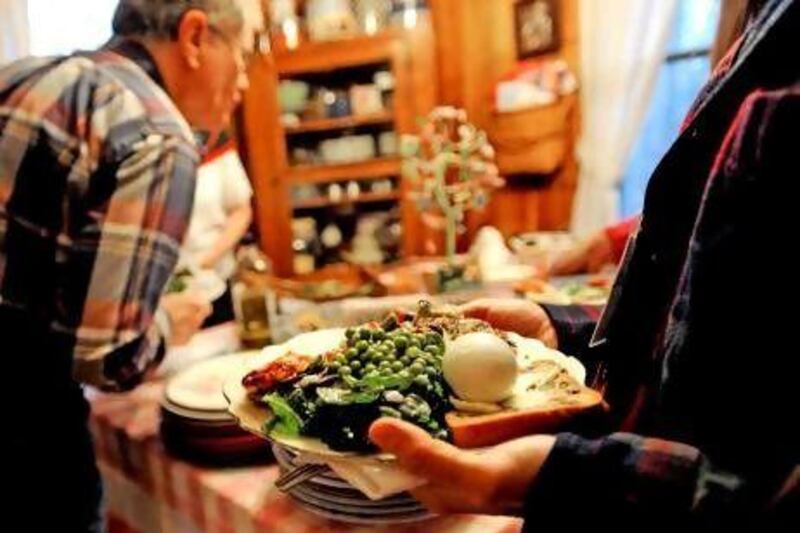It sounds like an unfolding epidemic: a decade ago, virtually no one in the US seemed to have a problem eating gluten in bread and other foods. Now, millions do.
Gluten-free products are flying off grocery shelves and restaurant menus are boasting of meals with no gluten. Celebrities on TV talk shows chat about the digestive discomfort they blame on the wheat protein they now shun.
"I don't know whether there are more people getting this or that more people are noticing [they have a problem]", says Richard Allen, a pastor at Mamaroneck United Methodist Church, north of New York City.
Or is it just another food fad?
Faddishness is a big part of it. Americans will spend an estimated US$7 billion (Dh26bn) this year on foods labelled gluten-free, according to the market research firm Mintel. But the best estimates are that more than half the consumers buying these products don't have any clear-cut reaction to gluten.
They buy gluten-free because they think it will help them lose weight, or because they seem to feel better, or because they mistakenly believe they are sensitive to gluten.
"We have a lot of self-diagnosing going on out there," says Melissa Abbott, who tracks the gluten-free market for the Hartman Group, a Seattle-area market research organisation.
Fads aside, research suggests more people are truly getting sick from the gluten found in wheat, rye and barley, but the reasons aren't clear.
In the most serious cases, gluten triggers coeliac disease. The condition causes abdominal pain, bloating and intermittent diarrhoea. Those with the ailment don't absorb nutrients well and can suffer weight loss, fatigue, rashes and other problems.
The case for gluten sensitivity was bolstered last year by a very small but often-cited Australian study. Volunteers who had symptoms were put on a gluten-free diet or a regular diet for six weeks, and they weren't told which one. Those who didn't eat gluten had fewer problems with bloating, tiredness and irregular bowel movements.
"Clearly there are patients who are gluten-sensitive," says Sheila Crowe, a San Diego-based doctor on the board of the American Gastroenterological Association.
What is hotly debated is how many people have the problem, she adds. It's impossible to know "because the definition is nebulous".
Whatever the number, marketing of foods without gluten has exploded. Those with coeliac disease, of course, are grateful. Until only a few years ago, it was difficult to find grocery and dining options.
"It's a matter of keeping people safe," says Michelle Kelly, an Atlanta-area woman who started a gluten-free, dairy-free, soy-free, nut-free bakery in 2010 after her son was diagnosed with coeliac disease. While conventional bakers use wheat flour, she uses such ingredients as millet flour, sorghum flour, brown rice flour and tapioca starch.
At one of Atlanta's largest and busiest health food stores, Return to Eden, the manager Troy DeGroff says more than a third of his customers come in for gluten-free products for themselves or their family.
"Thank you, Elisabeth Hasselbeck," he says, referring to one of the hosts of the daytime talk show The View who helped popularise gluten-free eating.
It's hard to say how many of his customers have a medical reason for skipping gluten. "But they're at least paying attention to what they're sticking in their mouth," he says.
On a recent Friday afternoon, several customers bought gluten-free products, though none had been diagnosed with coeliac disease or had digestive problems from eating wheat.
Julia White says she picks up gluten-free items when her granddaughters visit. They've been diagnosed with problems, she says. "They don't just make this up."
Another customer, Meagan Jain, says she made gluten-free cupcakes with a school friend and liked the taste. But she doesn't buy gluten-free often because "it's expensive".
"It's a fad," she says. "It's part of the eclectic, alternative lifestyle."






